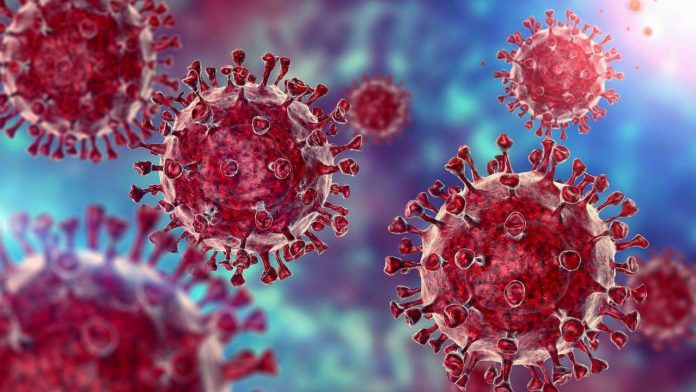Hello everyone!
Hope you all are safe and still following Covid-19 protocols. If not, please take precautions as a new Covid-19 variant ‘Delta Plus’ is detected. Recently, the Union Ministry of Health and Family Welfare has warned people against the new Covid-19 strain ‘Delta Plus’ (DP). In this blog, we will be covering all the important information about the Covid-19 Delta Plus Variant.
Background
- On 11 May 2021, World Health Organization (WHO) declared the Delta or B.1.617.2 variant of SARS-CoV-2 as a Variant of Concern (VoC).
- The Delta variant was first detected in India in October 2020.
- The Delta variant has been largely responsible for fueling the second wave of the coronavirus pandemic in India.
- This highly transmissible Delta variant of SARS-CoV-2 mutated into a new COVID-19 variant, Delta Plus or AY.1 variant.
About the Delta Plus Variant
- Delta plus (B.1.617.2.1/(AY.1) is a new variant of the SARS-CoV-2 coronavirus. It is formed due to a mutation in the Delta strain of the virus (B.1.617.2 variant).
- The Delta Plus variant is characterized by the mutant K417N found in the spike protein of SARS-CoV-2.
- This mutant of Delta was first detected in Europe in March 2021. In India, the Delta Plus variant, at present, is limited to smaller areas in the country.
- The Delta Plus variant has been found to be resistant to monoclonal antibody cocktail treatment for COVID-19.
- Since it’s a new variant, its severity is still unknown. 63 genomes of Delta (B.1.617.2) with the new K417N mutation have been identified by the GISAID (global science initiative) so far.
- People reported symptoms like headaches, sore throats, runny noses, and fever.
Delta Plus Variant cases in India
As of 23 June 2021, the Government of India has reported 40 cases of COVID-19 infection caused by the Delta Plus variant. The cases were found in Tamil Nadu, Kerala, Madhya Pradesh, and Maharashtra.
Major Concerns: Delta Plus Variant
- Although there is very limited information available, there is fear that this new variant may spark the third wave.
- It has acquired the spike protein mutation called K417N, which potentially makes it more transmissible.
- The spike protein is used by SARS-CoV-2, the virus which causes Covid-19, to enter the host cells.
- Some scientists fear that the mutation combined with other existing features of the Delta variant could make it more transmissible.
Are COVID-19 vaccines effective against the Delta Plus variant?
- Medical experts say it is too early to predict the effectiveness of the existing vaccines on the new variant.
- A detailed study would be required to establish any effect of the mutant on the immune system.
- However, Union Health Ministry says that both Indian vaccines — Covishield and Covaxin are effective against the Delta variant.
So, these were all the key points related to the Delta Plus Variant of Covid-19. Now let’s see what are the other variants of Covid-19 and how are they classified.
SARS-CoV-2 Variants of Concern and Variants of Interest
Viruses generally acquire mutations over time, giving rise to new variants. According to WHO, these variants are classified into two types – 1. Variants of Concern
2. Variants of Interest
Variants of Concern
A variant of concern (VOC) is defined as a variant for which there is:
- Increase in transmissibility or detrimental change in COVID-19 epidemiology; or
- Increase in virulence or change in clinical disease presentation; or
- Decrease in effectiveness of public health and social measures or available diagnostics, vaccines, therapeutics.
| S.No. | Name of Variant | Lineage | Earliest Sample | First Outbreak | Designated |
| 1. | Alpha | B.1.1.7 | September 2020 | United Kingdom | 18 December 2020 |
| 2. | Beta | B.1.351 | May 2020 | South Africa | 18 December 2020 |
| 3. | Gamma | P.1 | November 2020 | Brazil | 11 January 2021 |
| 4. | Delta | B.1.617.2 | October 2020 | India | VOI: 4-Apr-2021 VOC: 11-May-2021 |
Variants of Interest
A variant of concern (VOC) is defined as:
- Genome has mutations with established or suspected phenotypic implications
- Specific genetic markers that are predicted to affect transmission, diagnostics, therapeutics, or immune escape
- Identified to cause community transmission/multiple COVID-19 cases/clusters, or has been detected in multiple countries
- Assessed to be a VOI by WHO in consultation with the WHO SARS-CoV-2 Virus Evolution Working Group.
| S.No. | Name of Variant | Lineage | Earliest Sample | First Outbreak | Designated |
| 1. | Epsilon | B.1.429, B.1.427 | March 2020 | United States | 5 March 2021 |
| 2. | Eta | B.1.525 | December 2020 | Multiple Countries | 17 March 2021 |
| 3. | Kappa | B.1.617.1 | December 2020 | India | 4 April 2021 |
| 4. | Lambda | C.37 | August 2020 | Peru | 14 June 2021 |
| 5. | Lota | B.1.526 | November 2020 | United States | 24 March 2021 |
| 6. | Theta | P.3 | January 2021 | Philippines | 24 March 2021 |
| 7. | Zeta | P.2 | April 2020 | Brazil | 17 March 2021 |
These are the important variants that can be asked in exams so go through them.
So, this was all about today’s blog. We have covered all the key points related to the Covid-19 Delta Plus Variant. In addition, we have also looked at other variants of Covid-19. Hope you gained some insights after reading the blog.
Also, the virus is not gone yet so it is advisable to take adequate precautions and follow the Covid-19 protocols. Stay safe!




